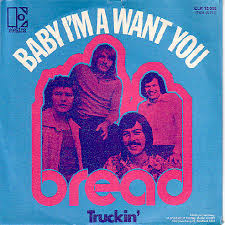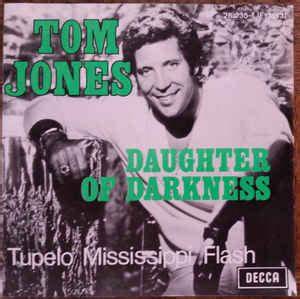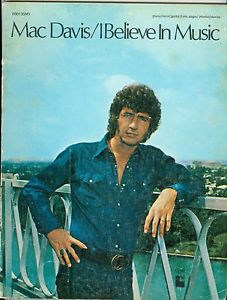Joel Carver Whitburn was an American author and music historian, responsible for setting up the Record Research, Inc. series of books on record chart placings.

"Goodnight, Irene" or "Irene, Goodnight," is a 20th-century American folk standard, written in 3
4 time, first recorded by American blues musician Huddie 'Lead Belly' Ledbetter in 1933. A version recorded by the Weavers was a #1 hit in 1950.
"Sparrow in the Treetop" is a popular song written by Bob Merrill. The song was published in 1951.

"Daybreak" is an uptempo pop song by Barry Manilow. It was composed by Manilow and Adrienne Anderson and first appeared on Manilow's 1976 studio album This One's for You.
"So Far" is a show tune from the 1947 Rodgers and Hammerstein musical Allegro when it was introduced by the character "Beulah" played by Gloria Wills.
"Young Love" is a popular song, written by Ric Cartey and Carole Joyner, and published in 1956. The original version was recorded by Ric Cartey with the Jiva-Tones on November 24, 1956. It was released in 1956 by Stars Records as catalog number 539 and one month later by RCA Records as catalog number 47-6751. Cartey's version never charted.
Mel and Tim were an American soul music duo active from 1969 to 1974. They are best known for the hit songs "Backfield in Motion", "Starting All Over Again" and "Good Guys Only Win in the Movies".
Down Yonder is a popular American song with music and lyrics by L. Wolfe Gilbert. It was first published in 1921, and was introduced in the same year at the Orpheum Theater, New Orleans.

"Walk Right In" is a country blues song written by musician Gus Cannon and originally recorded by Cannon's Jug Stompers in 1929. Victor Records released on a 78 rpm record and in 1959, it was included on the influential compilation album The Country Blues. A revised version of the song by the Rooftop Singers, with the writing credits allocated to group members Erik Darling and Bill Svanoe, became an international hit in 1963.

"Baby I'm-a Want You" is a song by American soft rock band Bread. The single was released in October 1971 and became the title track for the album of the same name, released in January 1972.
"Sioux City Sue" is a 1945 song and a 1946 movie. Lyricist Ray Freedman and composer Dick Thomas wrote the song. Thomas recorded the song in February 1945 for National Records and it was a number one Country charts hit for him. The song was Thomas' first chart entry on the Juke Box Folk Records chart and was also his most successful release: "Sioux City Sue" spent four weeks at number one on the Country charts during a stay of twenty-three weeks. The Dick Thomas version also reached Billboard's Best-selling Record charts attaining the No. 16 position.

"Daughter of Darkness" is a single by Tom Jones released in 1970 from his album, I Who Have Nothing. The single was a top ten hit in the UK, peaking at number five. In the United States and Canada, Jones just missed the top ten with "Daughter of Darkness", peaking at number 13 and number 11, respectively. The song went to number one in the United States on the Billboard Easy Listening chart in June 1970, and was Tom Jones final of three number ones on the chart. Elton John, who was working as a session musician at that time, also sang on the song.

"Desirée" is a 1977 song written and recorded by Neil Diamond and included as a track on Diamond's 1977 album, I'm Glad You're Here with Me Tonight. The single peaked at number 16 on the Billboard Hot 100 and reached number one on the U.S. Easy Listening chart to become his fifth number one on that chart. The song likewise reached number one on the Canadian AC chart.

"I Believe in Music" is a 1970 song written and recorded by Mac Davis and later included on his second album I Believe in Music. Gallery covered it in 1972 as the second of three singles off their Nice to Be with You album and the follow-up release to their title track.

"Stormy" is a hit song by the Classics IV released on their LP Mamas and Papas/Soul Train in 1968. It entered Billboard Magazine October 26, 1968, peaking at #5 on the U.S. Billboard Hot 100 chart and #26 Easy Listening. The final line of the chorus has the singer pleading to the girl: "Bring back that sunny day". The single, along with the prior release of "Spooky" and, soon after, the release of "Traces", formed a trio of solid hits for the band.
"People Say" is a hit single written by the Jeff Barry and Ellie Greenwich songwriting team and made popular by the American pop girl group The Dixie Cups. It was originally released in July 1964 on the Red Bird Records label. The song was arranged by Mike Stoller. Billboard named the song #53 on their list of 100 Greatest Girl Group Songs of All Time.
"Oh! What it Seemed to Be" is a song composed by Bennie Benjamin, George Weiss and Frankie Carle. The song was most popular in 1946, and was taken to number 1 that year by both Frank Sinatra and the Frankie Carle orchestra, the latter with Marjorie Hughes on vocals.

"I Live for Your Love" is a 1987 song by Natalie Cole. It was the second of four charting singles from her Everlasting LP, and was also the second greatest hit from the album.

"That's How Much I Love You" is a country music song written by Arnold, Fowler, and Hall, sung by Eddy Arnold, and released in 1946 on the RCA Victor label. In October 1946, it reached No. 2 on the Billboard folk chart. It was also ranked as the No. 10 record on the Billboard 1946 year-end folk juke box chart.









